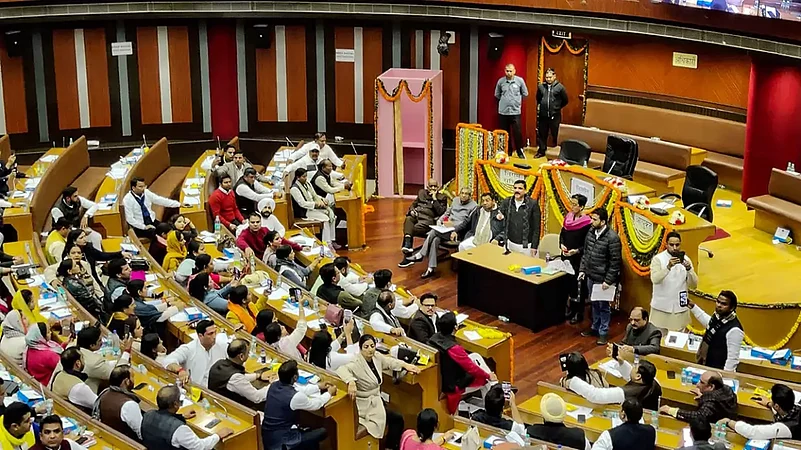In a dramatic parliamentary session on Monday, a divisive bill that hands central government control over bureaucrats in the Delhi government was approved by the Rajya Sabha, with 131 votes in favor and 102 against. The bill, titled the Government of National Capital Territory of Delhi (Amendment) Bill, 2023, sparked heated debates and impassioned arguments.
Home Minister Amit Shah staunchly defended the bill, emphasizing its intention to usher in an era of efficient and transparent governance in the national capital, free from the clutches of corruption. The bill aims to redefine the dynamics of power in Delhi's administrative landscape, according to media reports.
However, the opposition bloc, comprising INDIA and the BRS, vehemently opposed the legislation, branding it as a constitutional transgression, an affront to democracy, and a violation of federal principles. The corridors of power were electrified as political heavyweights, including former Prime Minister Manmohan Singh, graced the scene in a symbolic display of resistance.
Intriguingly, Naveen Patnaik's BJD and the YSRCP sided with the bill, adding a twist to the political narrative. The opposition, determined to muster its forces, showcased a visually compelling tableau, with an ailing Shibu Soren making a poignant appearance on a wheelchair.
This chapter unfolded on the heels of the Lok Sabha's voice vote that passed the bill on August 4, marking a crucial milestone in the legislative process. The bill, designed to supplant an existing ordinance governing the transfer and posting of officials within the Delhi government, has ignited a fiery discourse on governance and power dynamics.
Chief Minister Arvind Kejriwal, a potent force in Delhi politics, responded with fervor, accusing the BJP of multiple electoral setbacks against his AAP party. He boldly asserted that the BJP's attempts to seize control through covert methods were in vain. 'Why is the Prime Minister meddling in Delhi affairs?' Kejriwal questioned, highlighting the central government's influence over the local administration.
Kejriwal's fiery rhetoric continued, asserting that the BJP was no match for his party's dedication and accomplishments. He accused the BJP of harboring an ulterior motive to stifle his momentum, suggesting that their sole intent was to hinder his progress. Undeterred, Kejriwal expressed his unwavering faith in the people of Delhi, predicting a resounding victory for his party in the upcoming 2024 Lok Sabha elections.
In an unexpected show of unity, Kejriwal extended gratitude to the political parties that rallied behind AAP, creating an alliance against the contentious bill. As the dust settled on this intense parliamentary episode, Kejriwal marked the day as a 'black day' in India's democratic history, a day where power dynamics were reshaped and narratives rewritten.


























